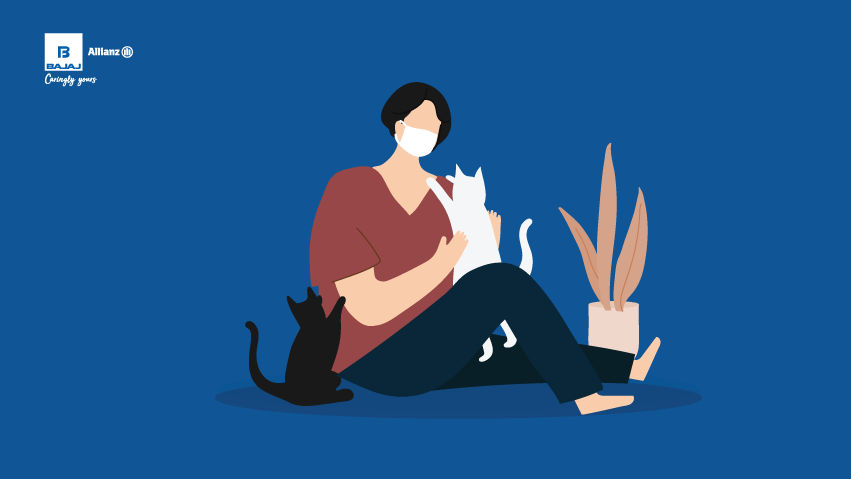Cats, while graceful and independent, are prone to certain health issues. Understanding common cat diseases and their symptoms is crucial for early detection and timely veterinary intervention. By being aware of these ailments, you can ensure your feline friend lives a long and healthy life. This post discusses common cat diseases and their symptoms so that you know when to visit a doctor.
Cat Diseases, Symptoms & When to Visit Doctor
Upper Respiratory Infections (URIs)
Cats, especially those in shelters or multi-cat households, are prone to upper respiratory infections. The culprits are usually viral, such as the feline herpes virus and calicivirus. Symptoms can include:
- Sneezing
- Nasal congestion
- Discharge from the nose and eyes
- Coughing
- Fever
- Ulcers on the tongue
Preventive vaccinations and maintaining good cleanliness can significantly reduce the risk of URIs. Regular veterinary check-ups ensure early detection and treatment of such cat diseases, helping to manage symptoms effectively.
Feline Lower Urinary Tract Disease (FLUTD)
FLUTD describes a collection of conditions that affect the bladder and urethra of cats. This disorder can be life-threatening if it causes a urinary blockage. Symptoms include:
- Difficulty urinating
- Frequent urination of small amounts
- Painful urination
- Blood in urine
- Licking the urinary area excessively
Immediate veterinary attention is crucial, especially if your cat shows signs of distress or a complete inability to urinate. Dietary changes, hydration, and stress reduction are essential management strategies.
Kidney Disease
Chronic kidney disease is a common problem in older cats, stemming from other health issues or wear and tear on the kidneys over time. Symptoms often appear gradually and can include:
- Increased thirst and urination
- Weight loss
- Lethargy
- Decreased appetite
- Vomiting
Managing kidney disease involves dietary modifications, medications, and possibly supplements to support kidney function. Regular veterinary monitoring is crucial to adjust treatments as the disease progresses.
Diabetes
Similar to humans, cats can develop diabetes, which can be managed but requires lifelong attention. Symptoms of diabetes in cats include:
- Increased thirst
- Increased urination
- Weight loss despite normal or increased appetite
Diet and insulin therapy are the mainstays of diabetes management. Regular veterinary visits are necessary to monitor the cat’s health and adjust treatments.
Must Read: 10 Common Pet Surgeries and How Pet Insurance Can Save You Money
Rabies
Rabies is a fatal viral disease that affects the brain and nervous system of all mammals and is caused by the rabies virus in cats. Vaccination is crucial as the disease is preventable but not treatable once symptoms appear. Symptoms of rabies in cats include:
- Behavioural changes
- Aggression
- Drooling
- Difficulty swallowing
- Paralysis
It is important to vaccinate your pet against rabies virus in cats or dogs to protect them and your family from this deadly disease. This vaccine is one of the core vaccines that you should administer to your cat without failure.
Feeding Your Cat Right: Nutrition for Chronic Conditions
Managing chronic conditions in cats isn't just about medication, it's also about what they eat. Work with your vet to personalise your cat’s diet specifically to their health needs, which can significantly ease symptoms and improve quality of life. A food with high-quality protein that doesn't contain much phosphorus may be the most ideal for cats with kidney disease, while diabetic cats tend to do better on low-carb food. Just remember that the right food not only fills their belly but also can act like medicine on their own. There must always be fresh and clean water to provide them with hydration and help manage health issues.
The Importance of Pet Insurance
Unexpected veterinary bills for treatments of these cat diseases can be financially exhausting. Pet insurance from Bajaj Allianz General Insurance Company can reduce the burden of such expenses. It allows you to focus on what's most important—your pet's recovery and care—without the stress of high medical costs.
By understanding the signs and symptoms of these common diseases, you can make sure that your cat gets the best possible care. Early detection is key to managing and treating many feline diseases effectively. Investing in pet insurance can provide an extra layer of security, ensuring your cat receives the necessary treatment without financial strain.
FAQs
1. How serious is feline diabetes?
Feline diabetes can be a serious condition if not managed properly, but it can be controlled with appropriate diet and insulin therapy.
2. What is a common sign of FLUTD in cats?
One common sign of FLUTD is straining to urinate, often with little urine output.
3. Can indoor cats get infectious diseases?
Yes, indoor cats can still contract diseases, particularly if they come into contact with other cats or are not vaccinated.
4. What should I do if my cat shows signs of kidney disease?
Consult your veterinarian if your cat shows any signs of kidney disease, such as increased thirst, lethargy, or decreased appetite.
5. Is pet insurance worth it for a cat?
Yes, pet insurance can help manage the costs of unexpected veterinary care, making it a worthwhile consideration for cat owners.
Standard T&C Apply
Insurance is the subject matter of solicitation. For more details on benefits, exclusions, limitations, terms, and conditions, please read the sales brochure/policy wording carefully before concluding a sale.
Disclaimer: The content on this page is generic and shared only for informational and explanatory purposes. It is based on several secondary sources on the internet and is subject to changes. Please consult an expert before making any related decisions.
The information presented is not meant to be a substitute for medical advice. Any suggestions mentioned should be considered for general use only. For expert guidance on any health ailment or medical issue or any treatment/procedure, please consult a certified medical professional
Claims are subject to terms and conditions set forth under the health insurance policy.
 Service Chat:
Service Chat: 

